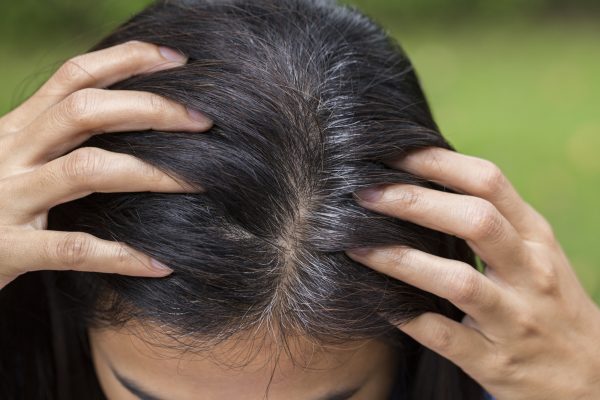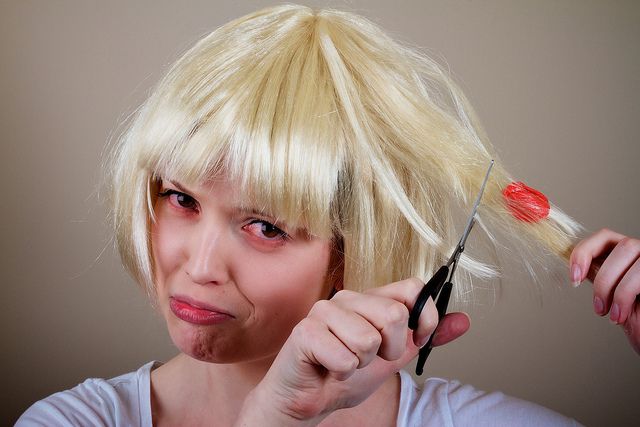Is frizziness making it difficult to manage your hair? You’ve probably heard about the incredible anti-frizz properties of hair serum. You’re debating whether you should try this new experiment on your hair and buy a hair serum.
At first, the concept may appear scary. So let us break down the scientific jargon for you and explain whether it’s truly worth the buzz.
What Is Hair Serum and What Does It Do?
Hair serums, like skin serums, are made with active ingredients to penetrate deeper into your hair. They are used to manage frizz, style hair, and protect it from environmental irritants.
While oils feed the scalp, serums operate on the skin’s surface. You may use them as a temporary remedy or as a replacement for your conditioners.
“Hair serums aid in restoring lost lipids, hence reducing cuticular damage,” explains our top dermatologist, Dr. Harish Koutam. It is critical that you apply the serum evenly throughout your hair, paying specific attention to the areas where it is most required. Choose a protein-rich serum if your hair has been chemically treated.”
Hair Serum Advantages
Smoothes hair, adds shine, controls frizz, detangles hair, and repairs hair damage
It protects the hair from environmental pollutants.
Maintains curls and straight hair
How Do You Apply Hair Serum?
When to Use:
One of the primary advantages of serum is pollution prevention. Serum should be applied to wet, freshly washed hair. It gives a layer of protection to your hair this way.
How to Use:
Begin at the ends of your hair and work your way up to the center regions. Applying serum to your scalp might cause your hair to seem oily and greasy. In fact, we recommend ignoring the roots entirely to minimize product accumulation. Remember that your ends are the most in need of shine, so dab it in!
Serums have a significantly thicker consistency. So, instead of hastily massaging it into your palms, let the serum sit in your palms for 5-6 seconds. This allows the serum to liquify, soften, and glide softly throughout the hair.
What Should You Use:
Serums should not be overapplied. If you have thin or greasy hair, use a pea-sized quantity of serum; if your hair is thicker and drier, use a bit more.
Myth debunker:
Serum is unnecessary for thin hair since it causes it to fall flat.
Truth:
A hair serum can be used by anyone. Stick to the lighter mixture if you have thin or greasy hair. Choose a strong, ultra-moisturizing solution if you have dry hair.
How Do You Choose the Best Serum for Your Hair Type?
Serums are silicone-based solutions that coat your hair and smooth out frizz and flyaways. Select one based on your hair type and issue:
1. Frizzy And Dry Hair
Look for serums that contain components such as rosewood, castor, and marula. They are all quite hydrating for your hair.
2. Separated Ends
Your hair is easily broken. In your serum, look for components like keratin (a hair protein).
3. Heat and pollution damage to hair
Choose lavender and jojoba oils to care for your hair, detangle it, and make it incredibly lightweight.
4. Hair that is dry
For your hair type, there are cream-based serums that may be applied and left on overnight.
5. Long Hair
If you have exceptionally thick hair, serums enriched with argan oils and Moroccan oils should be your go-to.
5. Hair that is curly
This hair type is more difficult to maintain. In your serums, look for components like jojoba, sweet almond oil, argan, and marula. These provide additional hydration.
Hair that has been colored or chemically treated
Look for serums that contain mixtures such as coconut oil and green tea extracts.
FAQ
Is Hair Serum Required?
For all the right reasons, hair serum has become an integral element of our hair care regimens. Shampoos, although sufficiently cleansing, might expose the hair cuticles. Conditioner does not effectively seal your cuticle, thus a layer of serum is required.
If you can’t live without heat styling your hair, serums should be a component of your hair care routine. They protect your hair from heat damage by adding a layer of protection.
Can We Use Hair Serum Every Day?
Serums are not recommended for daily usage by haircare professionals. Use serums only for special occasions and on days when you wash your hair. However, if you have severely unmanageable and frizzy hair, you may also apply an oil-based serum every day.
What Happens If You Use Too Much Serum In Your Hair?
Excessive hair serum application might result in greasiness. If you need to solve this problem, a dry shampoo will come in help. What else are you capable of? Spread the product evenly with a brush or a wide-tooth comb.
What Is the Distinction Between Hair Oil and Hair Serum?
Although hair oil and serum appear to have the same texture, their functions are not the same. Hair oil penetrates the cuticle and reaches the cortex of hair strands. Oil of Hair not only nourishes the hair but also repairs damage caused by heat styling and coloring. Hair serum enhances shine and minimizes frizz on the hair’s outer layer.
Is there anything bad about hair serum?
Hair serums are designed for the hair shaft rather than the roots. Keep in mind that the chemicals in serums might cause hair damage if used for an extended length of time. They can cause hair breakage and fall. Some hair serums can cause hair to become dry. Reduce the frequency of application of hair serum to avoid negative effects.
What Can We Do Instead Of Using Hair Serum?
You can use a homemade serum instead of hair serum. Combine 4 tablespoons avocado oil, 2 tablespoons jojoba oil, 2 tablespoons almond oil, 2 teaspoons argan oil, and 2 tablespoons grapeseed oil in a mixing bowl. This natural oil combination is your best chance for shinier, bouncy hair. It will not, however, have the lightweight sensation of silicone oils.
Key Takeaway
We hope this article has helped you get the most out of your hair serums. Choose a hair serum that is appropriate for your hair type, and you are ready to flaunt the glossy hair days ahead. Apply it solely to the shafts of your hair and stop using it if it produces sores on your scalp or excessive hair fall.



